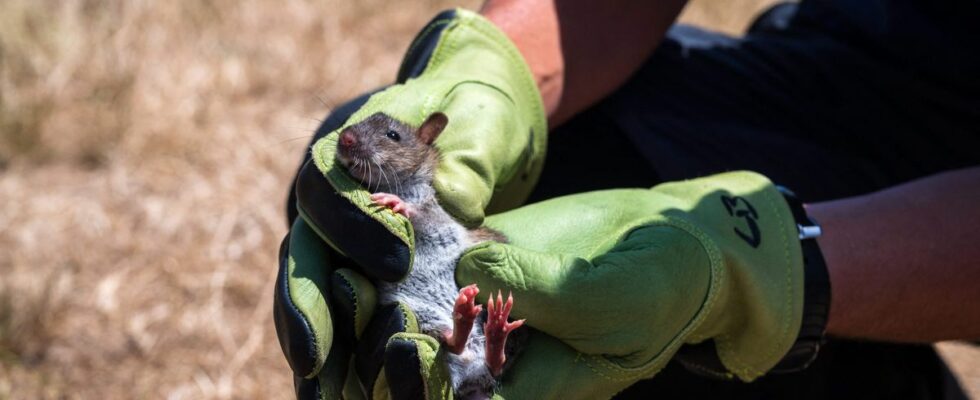Not everything cute is good for the environment. On the island of Amsterdam, rodents, cats and rabbits have become species that harm the ecosystem. This is why the radical decision to eradicate them was taken, in order to protect the nature reserve created in 2006.
After centuries of voluntary, or involuntary, introduction of exotic mammals and plants by humans in the Southern Lands, Amsterdam Island, which is part with Crozet and Kerguelen of the French Southern and Antarctic Lands (Taaf), must reinstall a balance on these very fragile subantarctic islands. Even if it means taking difficult measures to eradicate or limit invasive species. In Amsterdam, “the Reci project (restoration of island ecosystems in the Indian Ocean) aims to eradicate rats, cats and mice by winter 2024”, explains Lorien Boujot, technician for the management of introduced mammals in Amsterdam, to the environment department of Taaf.
bird eaters
“Cats and rats, since they were introduced to Amsterdam, are the main cause of the disappearance of a dozen species of breeding birds,” he says. Rats tend to “predate” eggs or even chicks, and cats can attack animals in the adult stage. In addition, “rats are carriers and vectors of avian cholera disease. It is likely that this disease was brought to the island when there was a chicken coop and now it is decimating year after year the reproduction of the yellow-billed albatrosses, present on the cliffs of Entrecasteaux”, in the south of the island, adds Lorien Boujot.
Mice have a big impact on vegetation. “They eat a lot of inflorescence and seeds of native plants like Phylica, a shrub that used to form a belt all around the island and for which natural regeneration is almost non-existent”. Agents do try to replant young Phylica, but “rats tend to eat and break young plants”, underlines Lorien Boujot.
difficult operation
The eradication operation planned for the austral winter of 2024 will consist of two aerial spraying operations over the entire 55 km² island, which is very rugged, three weeks apart. “The difficulty is that if we miss a rodent’s vital area, the operation is a failure”, indicates Lorien Boujot. The Reci project also provides teams on the ground to perhaps eradicate the last cats present, by trapping and shooting, he specifies.
Equipped with a hunting permit, the two field agents specializing in “introduced mammals”, Louis Gillardin and Brieuc Leballeur, are responsible for this difficult task for the 2023 wintering season. At the end of the eradication campaign 2024, it will be necessary to wait two years without detection to say that the operation is successful, and “within ten years” the return of the species of birds which had ceased to nest in Amsterdam, estimates Lorien Boujot.

